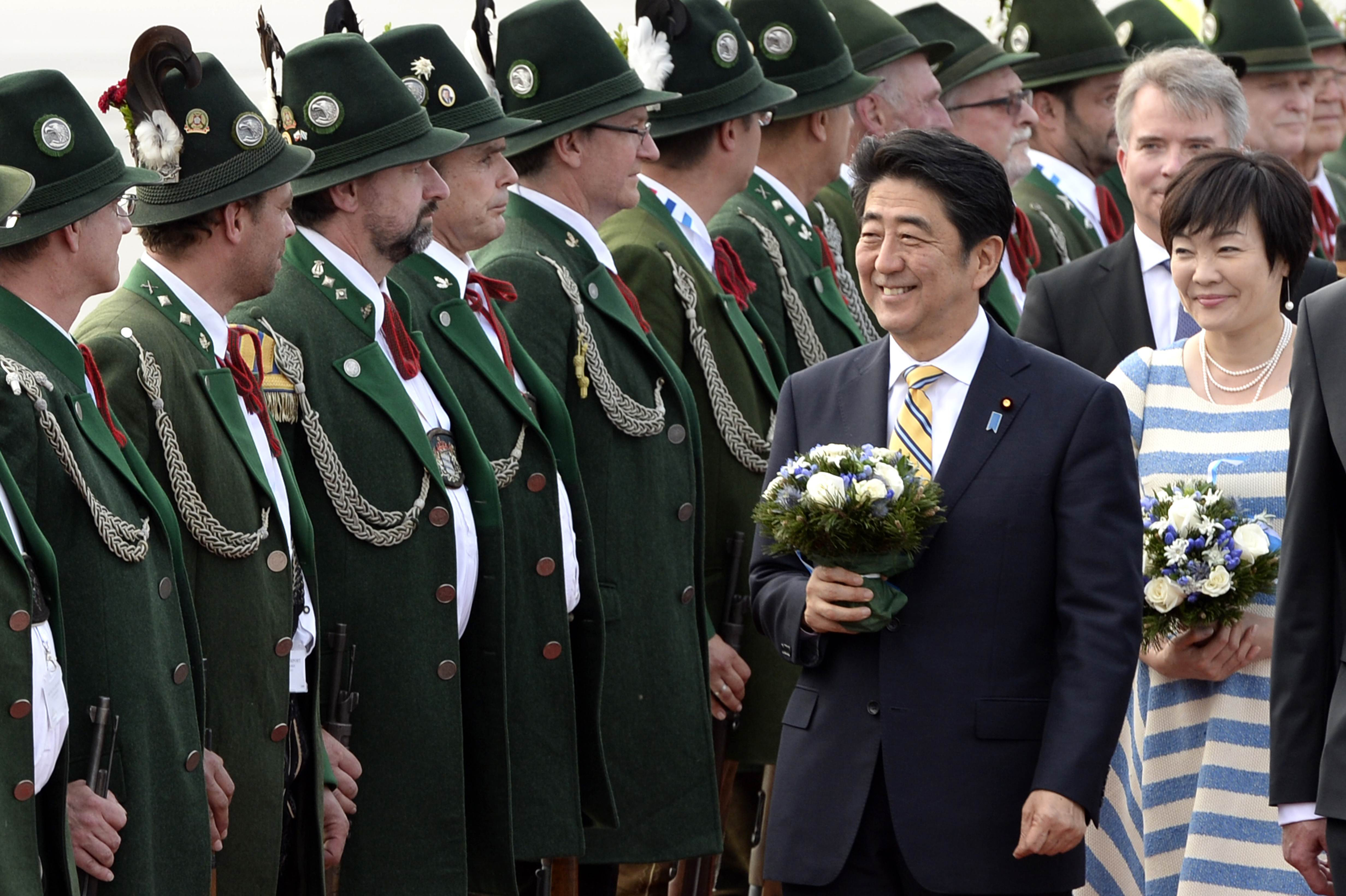Leaders of the Group of Seven industrialized nations were to start a two-day meeting Sunday in Germany at which Prime Minister Shinzo Abe will seek to drum up the major democracies' opposition to attempts by Russia and China to "change the status quo" in Ukraine and the East and South China seas, respectively, by force.
Drawing parallels between the Ukraine crisis, sparked by Russia's annexation of Crimea last year, and China's massive land reclamation efforts in disputed waters in the South China Sea, Abe, together with his G-7 peers, is expected to urge Moscow and Beijing to refrain from muscle-flexing that is escalating tensions with other countries and to behave in accordance with international law, according to Japanese officials.
Japan is not among the claimant states in the South China Sea issue, but it is embroiled in a row with China over the Senkaku Islands in the East China Sea. China has repeatedly been sending state ships into Japanese waters around the Senkakus in an attempt to undermine Japanese administration of the islets, which are claimed as Diaoyu by China and Tiaoyutai by Taiwan.



